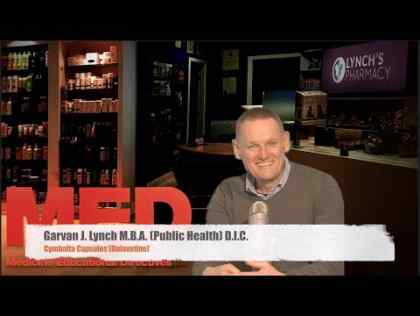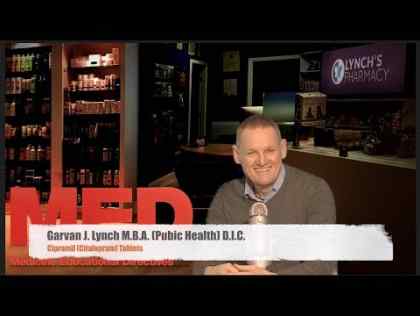
What is it?
Many new moms experience the baby blues after childbirth, which commonly include mood swings and crying spells and fade quickly. But some new moms experience a more severe, long-lasting form of depression known as postpartum depression. Rarely, an extreme form of postpartum depression known as postpartum psychosis develops after childbirth.
Postpartum depression isn't a character flaw or a weakness. Sometimes postpartum depression is simply a complication of giving birth. If you have postpartum depression, prompt treatment can help you manage your symptoms — and enjoy your baby.
Symptoms
Signs and symptoms of depression after childbirth vary depending on the type of depression.
Baby blues symptoms
Signs and symptoms of the baby blues — which last only a few days or weeks — may include:
- Mood swings
- Anxiety
- Sadness
- Irritability
- Crying
- Decreased concentration
- Trouble sleeping
Postpartum depression symptoms
Postpartum depression may appear to be the baby blues at first — but the signs and symptoms are more intense and longer lasting, eventually interfering with your ability to care for your baby and handle other daily tasks. Postpartum depression symptoms may include:
- Loss of appetite
- Insomnia
- Intense irritability and anger
- Overwhelming fatigue
- Loss of interest in sex
- Lack of joy in life
- Feelings of shame, guilt or inadequacy
- Severe mood swing
- Difficulty bonding with the baby
- Withdrawal from family and friends
- Thoughts of harming yourself or the baby
Untreated, postpartum depression may last for a year or more.
Postpartum psychosis
With postpartum psychosis — a rare condition that typically develops within the first two weeks after delivery — the signs and symptoms are even more severe. Signs and symptoms of postpartum psychosis may include:
- Confusion and disorientation
- Hallucinations and delusions
- Paranoia
- Attempts to harm yourself or the baby
Causes
There's no single cause for postpartum depression. Physical, emotional and lifestyle factors may all play a role.
Physical changes. After childbirth, a dramatic drop in hormones in your body (oestrogen and progesterone) may contribute to postpartum depression. Other hormones produced by your thyroid gland also may drop sharply — which can leave you feeling tired, sluggish and depressed. Changes in your blood volume, blood pressure, immune system and metabolism can be further stresses that contribute to fatigue and mood swings.
Emotional factors. When you're sleep deprived and overwhelmed, you may have trouble handling even minor problems. You may be anxious about your ability to care for a newborn. You may feel less attractive or struggle with your sense of identity. You may feel that you've lost control over your life. Any of these factors can contribute to postpartum depression.
Lifestyle influences. Many lifestyle factors can lead to postpartum depression, including a demanding baby or older siblings, difficulty breast-feeding, exhaustion, financial problems, and lack of support from your partner or other loved ones.
In addition, some women may be genetically more vulnerable than others to postpartum depression. However, it's not clear whether hereditary factors that increase a woman's risk of postpartum depression are different from those that increase her risk of depression overall.
Risk factors
Postpartum depression can develop after the birth of any child, not just the first. The risk increases if:
- You have a history of depression, either during pregnancy or at other times
- You had postpartum depression after a previous pregnancy
- You've experienced stressful events during the past year, including illness, job loss or pregnancy complications
- You're having problems in your relationship with your spouse or significant other
- You have a weak support system
- You have financial problems
- The pregnancy was unplanned or unwanted
The risk of postpartum psychosis is higher for women who have bipolar disorder.
Complications
Left untreated, postpartum depression can interfere with mother-child bonding and cause family problems. Children of mothers who have untreated postpartum depression are more likely to have behavioral problems, such as sleeping and eating difficulties, temper tantrums and hyperactivity. Delays in language development are more common as well.
Untreated postpartum depression can last up to a year or longer. Sometimes untreated postpartum depression becomes a chronic depressive disorder. Even when treated, postpartum depression increases a woman's risk of future episodes of major depression.
Diagnosis
The Diagnostic and Statistical Manual of Mental Disorders (DSM) considers postpartum depression a subtype of major depression. The DSM is published by the American Psychiatric Association and is used by mental health providers to diagnose mental conditions and by insurance companies to reimburse for treatment.
According to the DSM, in order for postpartum depression to be diagnosed, signs and symptoms of major depression must develop within four weeks of giving birth.
Signs and symptoms of a major depressive episode include, in part:
- Depressed mood most of the day, nearly every day
- Reduced interest and pleasure in activities you used to enjoy
- Significant change in your appetite or unintended change in your weight
- Inability to sleep (insomnia) or excessive sleepiness (hypersomnia)
- Restlessness or notable slowed movements
- Fatigue or loss of energy
- Feelings of worthlessness
- Diminished ability to think, concentrate or make decisions
- Recurrent thoughts of death or suicide
To distinguish between a short-term case of the baby blues and a more severe form of depression, your doctor may ask you to complete a depression-screening questionnaire.
In addition, your doctor likely will perform blood tests to determine whether an underactive thyroid is contributing to your signs and symptoms.
References
http://www.mayoclinic.org/diseases-conditions/postpartum-depression/basics/definition/con-20029130
https://www.hse.ie/eng/health/az/P/Postnatal-depression/Symptoms-of-postnatal-depression.html
http://my.clevelandclinic.org/health/diseases_conditions/hic_Depression/hic_Depression_After_the_Birth_of_a_Child_or_Pregnancy_Loss
http://www.webmd.com/depression/postpartum-depression/




